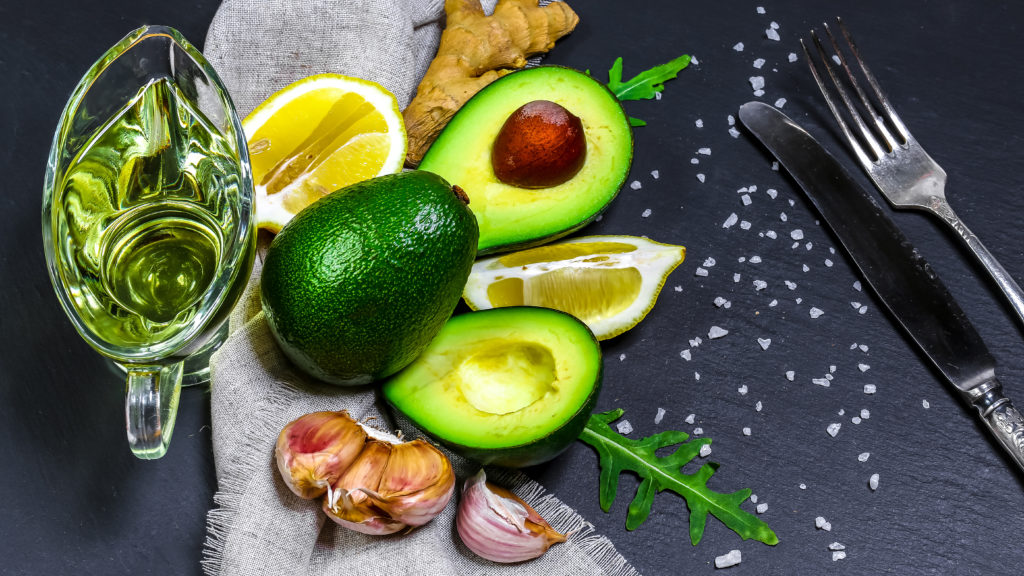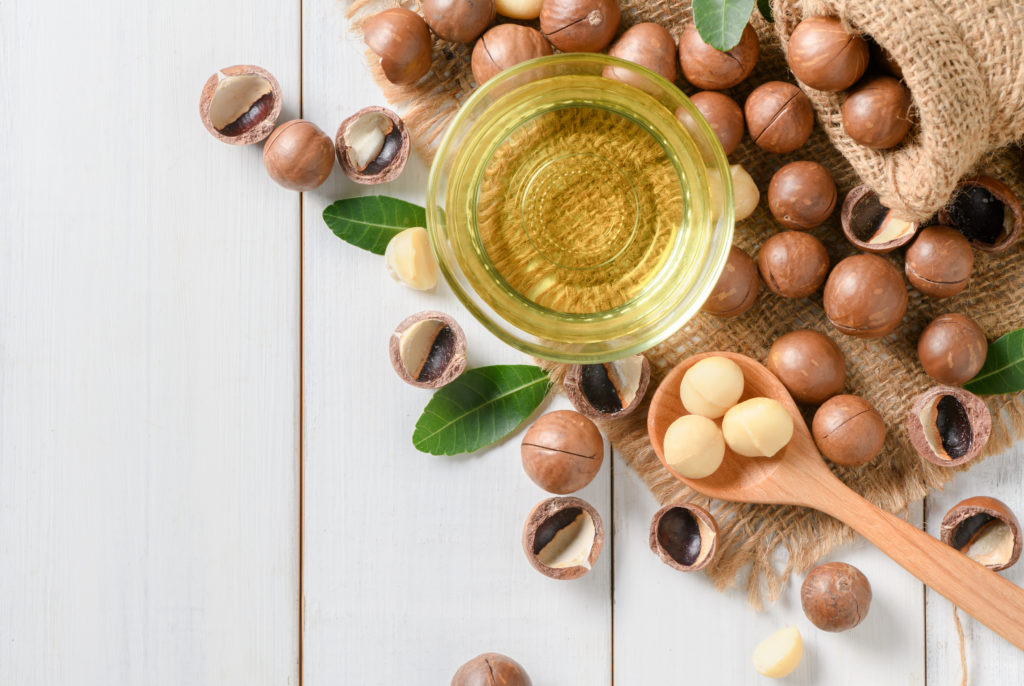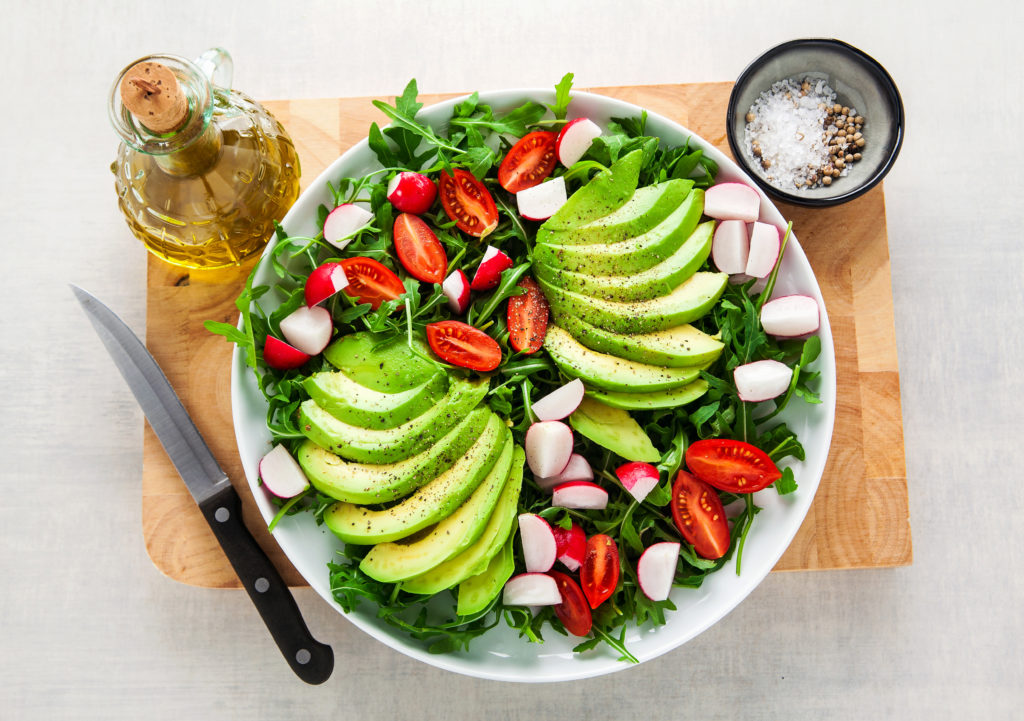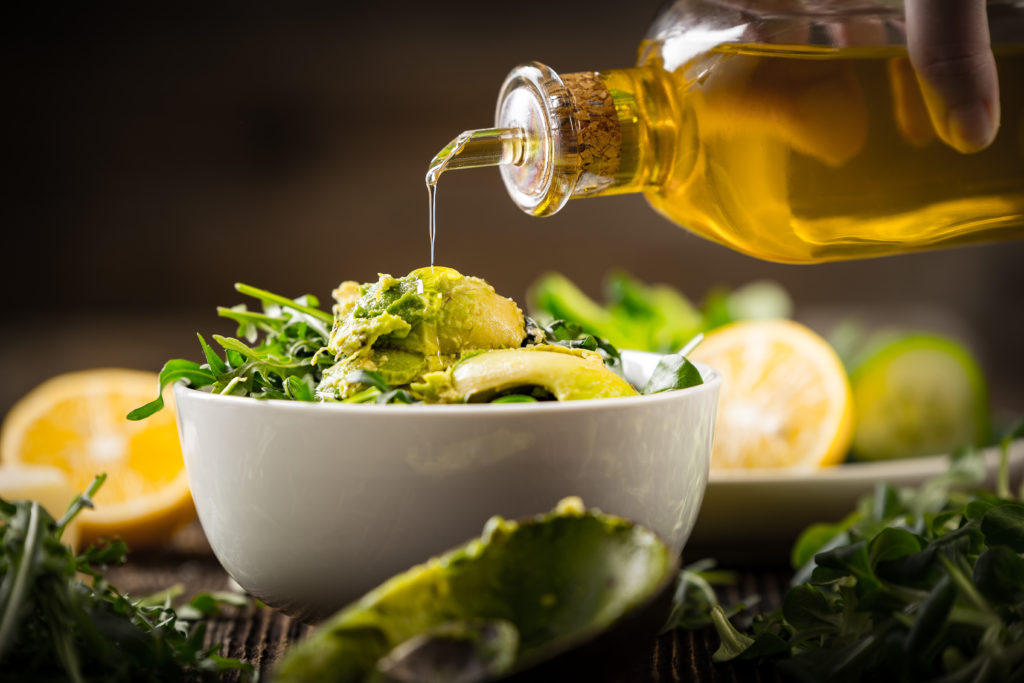
Are you a vegetarian?
Are you interested in experiencing the countless benefits offered by a keto diet?
Or, are you already following a keto diet but are planning to give up meat for ethical purposes or any other reasons?
A ketogenic vegan lifestyle is the perfect answer to all your questions.
But a keto diet is pretty challenging to follow, and many people tend to get stumped when it comes to following a keto-vegan diet. It seems a little too restrictive. What are you going to eat and what should you stop consuming? Is there even something like easy ketogenic vegan recipes?
I’m going to answer all these questions for you.
But before I get into details, let’s first discuss all you need to know about a ketogenic vegan lifestyle, its benefits and how you can follow it easily.
What is the Keto Diet?
Simply put, the keto diet is a low-carb, moderate protein and a high-fat diet. It is hailed all over the world for its amazing weight loss as well as other health benefits it offers. The aim of the keto diet is to change the predominant fuel source of the body from glucose to ketone bodies and fats. When you make this shift, the fat stores in the body will be utilized to generate energy. This leads to weight loss, as well as reduced blood glucose levels. Both will take you towards the path of health and well-being.
When following the keto diet, you need to restrict your carbohydrate intake to less than 50 grams a day (or even less!). This translates to almost 5-10% of your calorie intake per day to remain in the ketosis state.
Furthermore, you need to moderate your intake of protein to 10-20% of the total daily calorie intake. To get the required amount of proteins, the regular keto diet depends on high-fat animal products, including butter and lard, fatty fish, meats, and often full-fat dairy. However, these animal-based products are not allowed when one follows the ketogenic vegan diet.
The keto diet is mostly composed and based around fat. Fats constitute to around 75% of the daily calorie intake in the keto diet.
So, What Does It Mean for Vegans?
Does that mean that vegans cannot follow a ketogenic diet?
A vegan diet is restrictive, and so is keto. And combining the two can make a diet super restrictive.
But vegans can still follow the ketogenic diet and the ketogenic lifestyle. It will just be a little more challenging to follow than the basic keto diet.
Vegans will need to reach ketosis in their body by opting for plant-based products that are high in fat content. These include, but are not limited to, avocados, olives and olive oil, nuts, seeds, and coconut oil.
As you see, following a vegan keto diet is definitely possible, but you will just have to limit the things you can eat. And you will need to be more creative when it comes to meal planning and recipe designing.
On this blog and with my 7-Day Keto-Vegan Meal Plan, I will help you adopt the ketogenic vegan lifestyle in a simple way.
5-Step Plan to a Well-Formulated Vegan Ketogenic Diet
If you wish to follow a vegan ketogenic lifestyle, here is our easy-to-follow 5-step action plan to help you get started.
1. Restrict the Intake of Carbs
First things first, you need to restrict your carb intake to maximum 50 grams/day – or even lower – in order to not only reach ketosis but also remain there. This means that you will have to stop consuming many popular vegetarian protein sources, including buckwheat, pulses, legumes, and quinoa. All these foods are too high in their carbohydrate content, so they cannot be included in the keto diet. You will also need to steer clear of starchy vegetables and fruits (other than a few berries).
2. Include a High-Quality Protein Source to Each Meal
A person needs around 60-100 grams of protein a day when following a keto diet, depending on their body composition, weight, age, and activity level. When you are following a keto-vegan diet, you don’t have a lot of options when it comes to the protein portion that you need daily. You can get the required amount of proteins from sources such as hemp seeds, which are rich in magnesium, omega-3 fatty acids, potassium, and soluble fiber. You may also include almond or nut butter to your daily diet to get the required amount of proteins. Plant-based low-carb proteins, like rice protein made from sprouted brown rice, are an excellent addition to your keto-vegan diet.
3. Include Low-Carb Vegetables to Your Daily Diet
Zucchini, spinach, avocado, kale, cauliflower, broccoli, bell peppers, mushrooms, eggplant, cucumber, garlic, radish, onion, lettuce, shallots, celery stalks, Brussels sprouts… (there are many!) are great sources of vitamins, potassium, folate, and fiber, and they are low in carbs, too. Include these keto-friendly vegetables to your diet to get enough micronutrients to keep your body healthy.
4. Use Healthy Oils
Healthy fats not only taste delicious but also help you feel full for a longer period of time. They also improve the food’s texture and are also important for the proper absorption of vitamins A, E, D and K. However, since you are on a vegan keto diet, you need to choose healthy fats. Seed and vegetable oils are usually highly processed and can cause inflammation because of their high omega-6 fatty acid content. It is best to choose healthy keto fats such as coconut oil, avocado oil, macadamia oil, and especially extra virgin olive oil for your meal preparations and for dressings.
5. Use Herbs and Spices
You can add various herbs and spices to increase the variety in your keto-vegan diet. They not only provide very few carbs but also give your body an additional dose of micronutrients, flavonoids, etc. You can experiment with the ones you haven’t tried yet to add a little more flavor and taste to your easy ketogenic vegan recipes. Herbs like cilantro, basil, and oregano not only add flavor to your vegan keto meals but also have health benefits. You can also add thyme, rosemary, tarragon, marjoram, and even cinnamon to your vegan keto recipes.

Restricting Your Carb Intake
Restricting your carbohydrate intake can be hard enough on a regular ketogenic diet, and it becomes even harder when you plan to follow a vegan keto diet. However, once you know what you can eat and what not, you will know that it was not as hard as you were thinking.
Here are some of the main carbohydrate sources you should avoid when on a keto-vegan diet:
- Grains – corn, rice, wheat, cereal, etc.
- Sugar – agave, maple syrup, honey, etc.
- Legumes – lentils, peas, black beans, etc.
- Fruits – bananas, oranges, apples, etc.
- Tubers – yams, potatoes, etc.
On the other hand, you can enjoy the following low-carb vegan and keto-friendly foods:
- Mushrooms – king oyster, lion’s mane, shiitake, button mushrooms, portobellos, etc. (Did you know that mushrooms are the only natural plant-based source of vitamin D?)
- Leafy greens – kale, spinach, collard greens, etc.
- Above ground vegetables – zucchini, cauliflower, broccoli, etc.
- Seeds and nuts – almonds, sesame seeds, pumpkin seeds, sunflower seeds, chia seeds, etc.
- Berries and avocado – cranberries, raspberries, and any other low-glycemic berries
- Sea vegetables – kelp, bladderwrack, dulse, nori, etc.
- Fermented foods – sauerkraut, natto, kim chi, etc.
- Sweeteners – erythritol, monk fruit, stevia, and other natural low-carb sweeteners
- Oils – olive oil, avocado oil, coconut oil, MCT oil, etc.
Replacement for Eggs
It can be quite frustrating to see some mouth-watering low-carb recipes that have eggs as one of the main ingredients. There’s no need to fret, though. You will not have to give up on your dream of eating delicious foods. There are some vegan-friendly egg substitutes that you can use in your keto-vegan recipes.
Chia seeds – If you are looking for an excellent substitute, then finely ground chia seeds are a wonderful option. Chia seeds have a nutty flavor. They work best for recipes that require coconut flour or almond flour. One egg in the recipe can be replaced by 1 teaspoon of ground chia seeds in 3 tablespoons of water. Note, that flaxseed can be also used to replace eggs, but due to their detrimental effect on health (as they contain for example phytoestrogens, heavy metals, etc.) I don’t recommend them.
Eating Enough Fats on a Keto-Vegan Diet
You cannot eat eggs, fatty fish, dairy, or meat when you are on a keto-vegan diet. However, there are still abundant sources of fats that can be consumed. Here’s a list to choose from:
Coconut Oil – Coconut oil is an excellent fat source of keto-vegans. It can be used for desserts, in baking and cooking, and also in your savory dishes. It offers you the much-needed medium-chain and short-chain saturated fatty acids, which are an ideal fat source for people who are on a keto diet.
Olive Oil – Olive oil has plenty of health benefits. It can be used to enhance the flavor of any meal. Extra virgin olive oil can be used also for cooking – there is no fear of oxidization. Though, extra virgin olive oil is best enjoyed as is; it makes a great dressing for your keto-vegan salads.
Avocado Oil – Another great fat source for people on a keto-vegan diet is avocado oil. It contains more healthy mono-saturated fats than many other commonly used oils.
Nuts and Seeds – Nuts and seeds are a healthy addition to any diet. They contain different types of essential fats, which are very healthy for our bodies. When on a keto-vegan diet, you just need to make sure that you don’t exceed the total carbohydrate limit that you can consume. Also try to avoid nuts and seeds that are high in carbs (like cashew nuts and pistachios).
Benefits of Vegan Keto Diet
Following a vegan diet is shown to reduce the risk of chronic health conditions such as diabetes, heart diseases and also certain types of cancer. Studies have shown that people who follow a vegan diet have a 78% reduced risk of developing type 2 diabetes and a 75% lower risk of high blood pressure than those following a Standard American Diet. In addition to this, vegans tend to weigh less than non-vegans and adopting a vegan lifestyle makes it easier to lose weight.
It has been found that following a low-carb, high-fat ketogenic diet can also have a positive impact on your overall health and wellbeing. A vegan keto diet is well-known for its effectiveness when it comes to weight loss, reduced heart disease and blood sugar control. Keto diet is also found to significantly raise the levels of adiponectin, which is a protein involved in fat metabolism and sugar regulation. High levels of adiponectin result in reduced inflammation, better blood sugar control and reduced risk of obesity-related diseases, including heart diseases.
As vegan and keto diets have proven benefits for your health, combining the two would also positively impact your overall health.

Summary
A ketogenic vegan lifestyle is gaining popularity today. Traditionally, vegan diets are low in fats and rich in carbs, while a ketogenic diet follows the opposite. However, the benefits of these two diet trends combined are limitless. A ketogenic vegan diet is also linked to health benefits like a reduced risk of heart diseases, diabetes as well as improved weight loss. Following a vegan ketogenic diet may be a little difficult because of the dietary restrictions, but with some easy ketogenic vegan recipes, you can make your meals more interesting.
There are plenty of health benefits of a ketogenic vegan diet. However, it is important that you don’t let your body suffer in any way by depriving it of the nutrients that it needs. Your vegan ketogenic diet should provide your body with healthy nutrients so that your health and wellbeing does not suffer.
It is best to consult with your physician or dietitian before you make any major changes in your diet and lifestyle to make sure that any shifts in your diet don’t take a toll on your health.
Come back for easy ketogenic vegan recipes, meal plans, and more advice on following a ketogenic vegan lifestyle!


Leave a Reply
You must be logged in to post a comment.